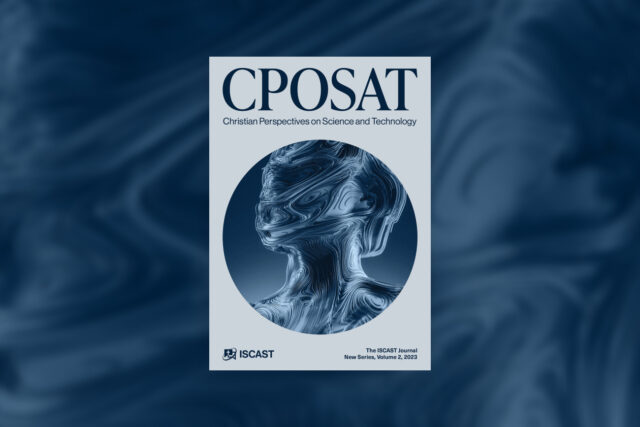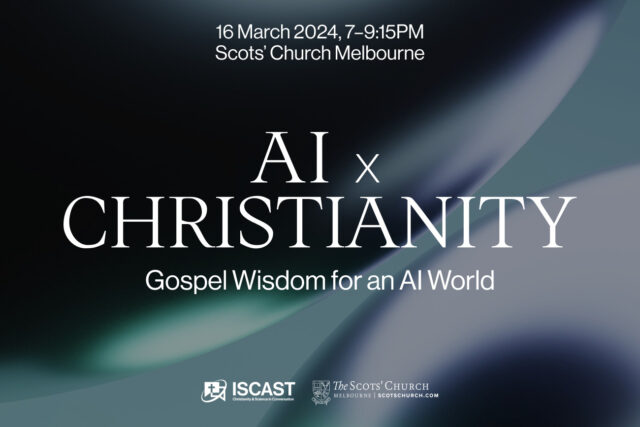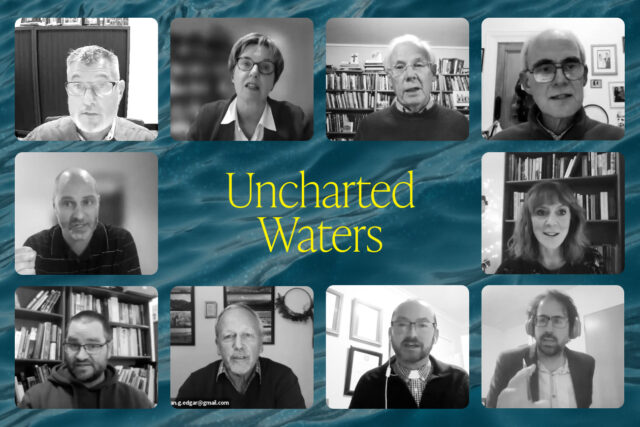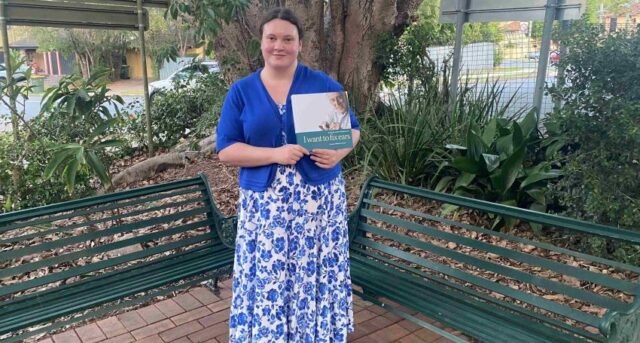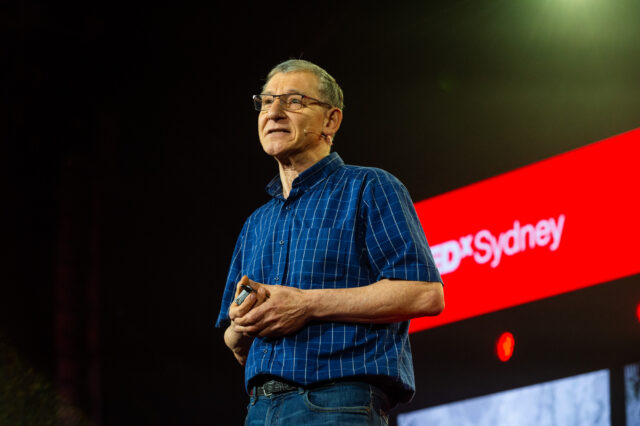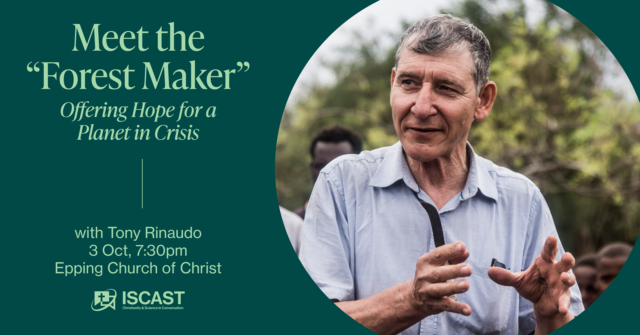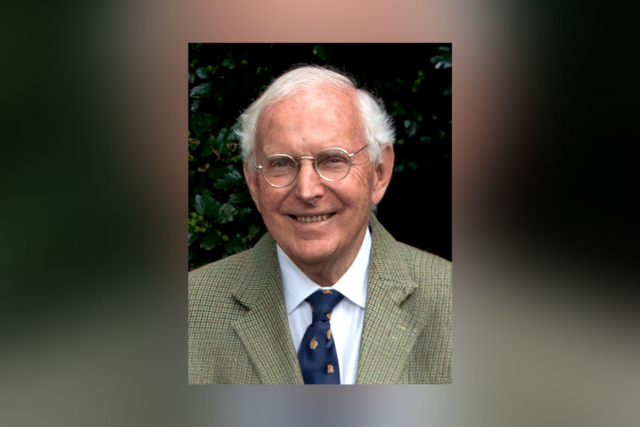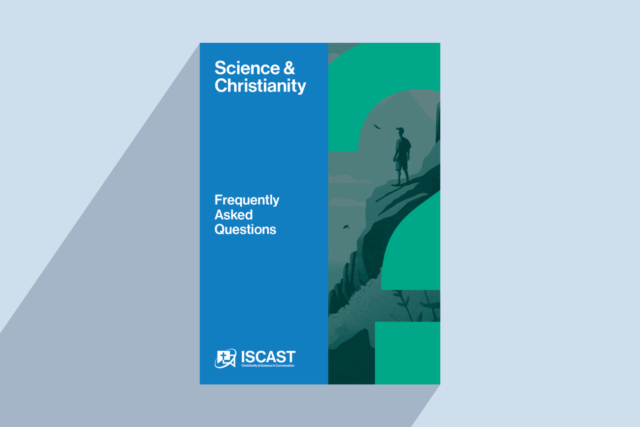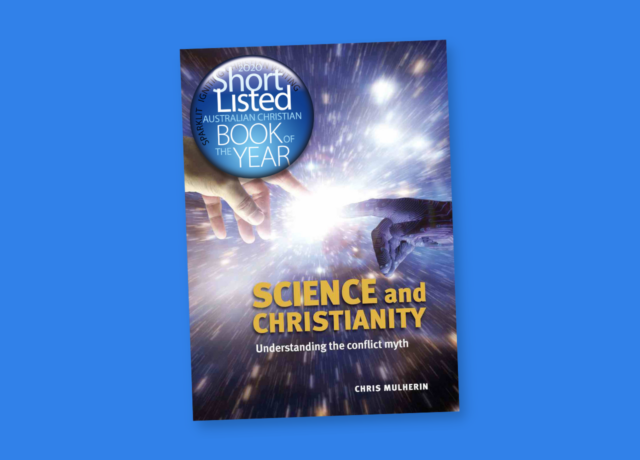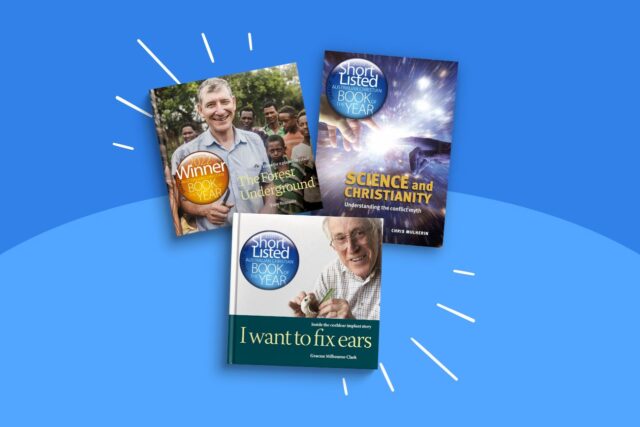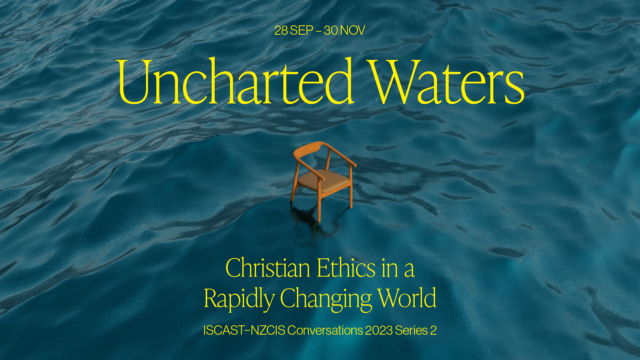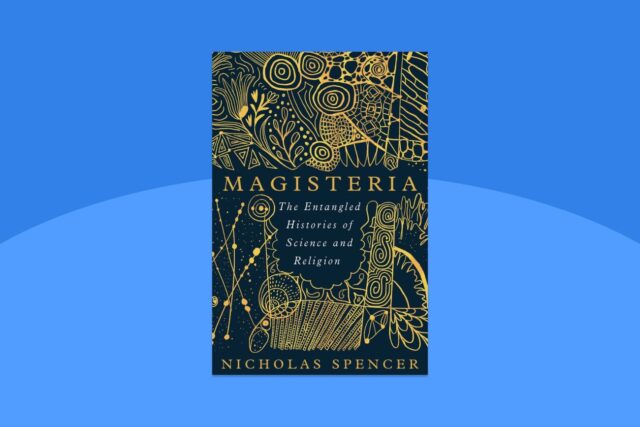
This is one paper arising from the Wicked Problems Symposium in Victoria in 2018. Click here to return to the summary report and links to the other papers.
Alan Gijsbers is president of ISCAST
I have been asked to sum up ISCAST Victoria’s conference on Wicked Problems held on September 7 2019. I have done so with considerable revisions from both Richard Gijsbers and Charles Sherlock, which has made this paper much better, but any ongoing mistakes are my own!
How can you conclude a discussion about wicked problems, when the issues they raise are so complex and so open-ended? All who address these problems are on a journey towards insight and solutions, and need to evaluate where they are at. Although the goal might be clear, that is, to substantially address a wicked problem, the path to a solution is unclear, for there is difficulty even delineating the dimensions of the wicked problem, let alone develop feasible strategies with diverse others towards solutions. Let me just tease out some strands describing the next steps in our journey as Christians in science and technology, addressing wicked problems.
Welcome to Country
I thank Sue Clout for reminding us that westerners have come to Australia most recently and that the original inhabitants were stewards of this country ages before Europeans came. We need to acknowledge that that event is seen differently by different people: ‘arrival’ and ‘settlement’ carry very different ideas from ‘invasion’ or ‘displacement’. The current reality is that the gap in life expectancy between the original inhabitants and the newer arrivals is a wicked problem, with many different stakeholders trying to find wise solutions to issues of disenfranchisement, demoralisation, clashing lifestyles, disempowerment, and paternalism. Addressing this issue needs prayer, wisdom, and courage.
Gender balance
One of our delegates commented on the male dominance in presenters. Both the ISCAST Board and the Victorian Committee are very conscious of this. ISCAST’s usual strategy for events is to call for papers. Clearly, we need to further encourage women interested in science and technology to become ISCASTians and make their distinctive contribution to the discussion. We will seek to continue to encourage gender balance, recognising that the Christian Church has had a very mixed history when it comes to hearing their perspectives, and in encouraging their leadership.
Ambiguity of the word wicked
I thank Charles Sherlock’s wonderful exposition of the ambiguity of meaning of the term wicked. It does not necessarily mean evil, but rather, as Richard Gijsbers described the term, wicked problems are complex, intractable, have multiple stakeholders each with very different agendas and understandings of what is required, have only one chance at a solution as time marches on, and so on. Charles usefully explored with us the issue of human finitude: being finite is not the same as being sinful. We see partially. We are creatures, not the creator. Is this not an aspect of the wicked problem, that we still hanker after the original temptation, to be like God, and thus for us to autonomously know the end from the beginning, and every step in between? Charles noted the classical distinction between ‘general’ and ‘special’ revelation. ‘General’ revelation is by far the largest in amount of divine truth, but in using it to our own ends, human beings, as persons and as a race, commit idolatry and find ourselves helpless in the face of ‘wicked’ problems. ‘Special’ revelation, the truth revealed in Christ and given written form in the holy scriptures, is God’s gift to transform us – not just inform us. In so doing it gives us glimpses into how to read and utilize that abundant truth given to us through nature, history, research, art, relationships, technologies, theatre, film, daily life and more …
As both individuals and communities, we who are owned by Christ are called to walk humbly and obediently with our creator, in constant dependence on God’s wisdom and guidance as we seek to fulfil our original mandate: to be fruitful, not just in offspring; to multiply the blessings not only of offspring but of truth; to fill the earth, in an ecologically responsible way; to subdue it, but not as conquistadors; and to have dominion over it, not as conquerors, but as stewards under God, following Christ the Lord, the humble servant.
A concept that is highly relevant here is providence, the ‘bridge’ between the doctrines of creation and redemption. As Charles indicated, this seeks to discern the ‘finger of God’ and the ‘wisdom of God’ in human life, whether among believers or more widely. That it was abused by Hitler, and in some versions of US ‘manifest destiny’ has given it a poor reputation in some circles. But it offers practical skills in pointing directions to move: that it why it was so favoured in the Puritan and Anglican traditions until World War II. Even if these are less definite than some would wish, they make a start when it seems there is nowhere to begin. Being able to clarify what is false in a situation is a start: this enables boundaries to be set within which responses of integrity can be made. Yet providence by definition always offers tentative responses, which always need to be reviewed and revised as circumstances change.
One aspect of the word ‘wicked’ worth reflecting on is the suspicion of other stakeholders, particularly when they are many and diverse. It is tempting to see others as having vested interests, whereas we have legitimate concerns. This can on the one hand lead to stifling mutual suspicion, or on the other hand denying vested interests can lead to an unguarded naivety. Sin can enter in at this point preventing cooperation, or sin can be there because of hidden agendas. Bill Walker’s paper usefully named “the powers” that can be at work preventing change and development, especially in the two-thirds world, but “the powers” also affect us in the western world. What are the emergent forces in collective human activity which lead to corruption? What do these say about the exercise of authority, and how does this bear on the powerlessness of the cross, and the high place of the powerless in of the kingdom of God?
Spirituality and the role of the sciences
What can be specific Christian contributions to wicked problems? I am tempted to say, spirituality, but I am reminded of what Charles Sherlock said years ago, that spirituality is not whatever is left over after the nurses, the doctor, the physiotherapist, and the social worker have had a go. It is the whole lot. Good physical care is spiritual. I enjoy asking Christian classes on spirituality to find and read Deuteronomy 23:12-14. Here Moses tells the people to dispose of their faeces carefully, because the Lord is holy, and so the camp must be holy. Faeces disposal is thus a spiritual activity. Proper faeces disposal has put an end to the enteric epidemics rife in Melbourne, Australia in the 1850s when Fawkner Park opposite the Alfred Hospital was a city of tents nursing patients with cholera and typhoid.
We talk about the distinction between technical and human problems, but it is also spiritual to provide good technical solutions. It is spiritual to pursue the sciences excellently, as sciences in their own right. There are many sciences, each with their own methodology, determined by their object. Thus, the historical sciences, like evolution, will have quite a different methodology from the experimental sciences, like physics and chemistry, or like the science of economics that explores the data of financial systems. But we need to integrate the sciences. Susan Cannon contrasts the analytical atomistic approaches of Newton and Linnaeus, which she characterises as a Baconian or analytical approach, with the approach of Alexander von Humboldt, a polymath who related his botanical collections to climate and geography, and sought to develop an integrated approach to his observations (see my book review on Humboldt[1]). We need a dialogue across the many different sciences, and I am grateful to Peter Clout, a social worker, for reminding us of the neurosciences which inform good social policy in social work.
Is there a specific Christian dimension to the sciences? Jean Pond said, “There is no such thing as a Catholic frog.”[2] The scientific endeavour is the same whether it is practiced by a Christian or anyone else. It is part of God’s general revelation, God’s divine providence that allows the rain to fall on the just and the unjust. In my vocation in daily life, my ‘secular’ calling, I therefore share a common commitment to patient care with people of other faiths and no faith.
What then is the Christian contribution to science? We sometimes encounter articles like the Christian contribution to medicine, or science, pointing out that Christians have significantly added to the story. However, it is also true that the story would be greatly diminished if we only embraced the Christian contribution, and discounted the contribution from those of other faiths and no faith. It is also difficult to evaluate the Christian contribution of say a Charles Darwin, who started as a theology student, was impressed by William Paley’s natural theology, but in the end became disillusioned with Christianity for personal reasons. There also seems to be a desire to recruit people to an “one of our faith” club. The better the scientist, the less orthodox the member of that club has to be. Hence Albert Einstein’s theological statements are given great weight because they are from the Great Man himself.
Do Christians then have something to give out of their faith to science? Both the Christian scientist and the non-Christian scientist see the same tree, but the Christian says that the Father has made that tree. The Christian sees more deeply, even if the non-Christian may understand the tree better. While there are no such things as Catholic frogs, for us they are our Father’s frogs.
One of our contributions is to explore spirituality. With my medical students I explore issues of meaning, purpose, and relationships. These are the Christian virtues of faith, hope, and love, rebadged with labels from daily life. However, there is more, for we are interested in the passions, in what drives and enthuses a person. I use the term enthuse purposely. For the person of faith, it connotes the indwelling power and passion of the Holy Spirit whose fruit and gifts empower the believer. Because a person of faith lives transcendently, she is conscious of the fact that we pray for God’s will to be done on earth as it is in heaven. We are transcendent people, those who live out of faith and hope in Christ, in the midst of an immanent society, focussed on the immediate and the material.
Virtues important, but not enough
What are Christian contributions to wicked problems? One is tempted to latch on to the many Christian virtues which can transform wicked discussions. Thus, Andrew Wilson’s great quote about a Christian contribution to wicked problems include: “humility, salt, light and leaven; treating others with dignity; listening deeply; and being slow to judge. To this list we might add curiosity.” These are a wonderful start to a Christian contribution to wicked problems, but if we add Plato’s three great virtues of truth, beauty and goodness, we are again committed to good, just science, with aesthetic dimensions. Again, we share these virtues in common with unbelievers. A recent book[3] on the spiritual contribution to clinical care suggested that Christians provide humanity and compassion. I reviewed this in the Christian Journal for Global Health[4]. My main critique was that Christians are not just about the virtues of humanity and compassion, but also about truth, hence the pursuit of science; and justice, hence our commitment to good policy. Again, these are not peculiar to Christians, but they are core Christian characteristics.
Theology
ISCAST is sometimes accused of lacking basic theology. However, ISCAST is composed of many Christians in all disciplines, including theology and philosophy. We each specialise in our own areas, but the challenge of ISCAST is to make our discipline accessible to others from different disciplines. As soon as we move outside of our own area of expertise, we become lay-people. Our dream is to make each of our specialties accessible to others, to move beyond our silos and into mutual education, enhancing each other’s contributions. This dialogue requires us to develop mutual respect and encouragement as we seek to be faithful to God in our disciplines, whether theology, philosophy, medicine, bushfires, domestic violence, community development, aboriginal advancement, and so on.
As one outside theological circles, can I ask my theologian siblings to consider the following?
1. Theology too needs to abandon the idea of an explicit grand theory of everything, a comprehensive systematic theology covering the full breadth of theological reflection. That awaits the new creation, when we shall see ‘face to face’ (1 Cor 13.12): now we see dimly, where the theological task must be pursued in favour of a humbler journey of partial insights and fragmented understanding. The temptation to be as God is particularly acute when we pursue the things of God, and all theological reflection needs to go forward on its knees, recognising our provisional understanding of God’s ways in the world.
2. There is a fundamental clash between the scientific outlook and some forms of Christian theology. The history of theology and science is littered with fundamentalist refusals to accept new insights into God’s truth. Science at its best sees itself as open-ended, with a future of finding out more and more, as past understandings are transcended. Our current understanding is partial, and new discoveries occur every day. Some forms of science and Christian theology are exclusively backward looking, towards the original tradition, and the better that tradition is understood, the truer that tradition is to itself. This is the theological equivalent of Bacon’s paradox. During the Renaissance scholars sought to more clearly reflect the traditions of the Greek golden age. The truer to the golden age, the better the scholarship. Bacon then asked how can knowledge, insight and wisdom advance?[5] Isaac Newton addressed the paradox in a letter to Robert Hooke, where he says we see further because we stand on the shoulders of giants.[6] Authentic theological reflection works from God’s future backwards, seeking to discern what living the new creation means for present contexts. The criteria for such discernment is given in the Christian ‘giant’, the Lord Jesus Christ revealed according to the scriptures, read under the guidance of the Holy Spirit. There can thus be a fundamental clash in outlooks in some theologies and sciences: both face the temptation to remain backward looking and closed, rather than being open to new discoveries and new ways that widen and deepen our understanding of God’s ways.
3. Can we integrate a creation theology with a salvation theology? That is, can we see the sin that we are being redeemed from as being about the way we humans have failed in the first task God gave us, namely to care for creation unselfishly and unto God? The sin of disobedience affected the created order, and we humans will be judged by God for our failure to deal justly with our stewardship of all God has given us. Sin is not just what we have done personally and inwardly as individuals before God, but also what we have failed to do practically in creation, individually and collectively. That is why liturgical traditions like the Anglican include a general confession in each Sunday service, confessing our part, albeit unknown, in the general ‘cussedness’ of things. Salvation’s purpose is not only being justified through faith in Christ, but being incorporated into Christ’s new humanity, living justly according to Kingdom values now, in anticipation of Christ’s return, looking forward to the new creation, the just reign of God and the Lamb. Creation and salvation are thus closely inter-twined – and it is the doctrine of providence which gives clues to us often witless creatures as to what it means to live ‘between the ages’ of history and eternity.
4. The amazing advances in knowledge brought about by the sciences and technologies bring new insights into nature: such general revelation gives us new and often challenging insights into the understanding of God and how human beings are to live in God’s world. For example, quantum theory and IVF are two very different areas of science and technology which are sources for theological and ethical reflection. Climate change and the differential, asymmetric advancement of well being are practical challenges facing humankind who seek ethical guidance in how to tackle these issues. Our theologies have to engage with these challenges or Christian insights will be lacking, counterproductive or regarded as irrelevant. Society will then simply blunder along without thoughtful Christian input and perspective. The challenge for theology is not to strive to dominate the agenda, but to provide wise input into these new issues.
5. It seems to me that the concept of the kingdom of God revealed in Christ is fundamental to all we are and do, whether in the sciences, or in the Queen of the sciences, theology. Our prayer is that God’s will be done on earth as in heaven. Members of ISCAST will be exploring this in the ISCAST Kingdom project where everyone is invited to share how this vision works out in their scientific practices. Such reflection is directly relevant to our daily work. In our Christian vocation we are called to address wicked problems, truthfully, justly, and with all the Christian virtues.
6. One particular virtue is worth spelling out more, and that is the virtue of relationships, or in Christian terms, love. Some thinkers describe spirituality in terms of love; love of God, of one’s neighbours, of oneself, and of the environment. There is also a missiological dimension to these terms, for fundamentally the gospel is the story of God’s love for sinful humankind, and how God in Christ showed us divine love in word and deed. God’s love was demonstrated by Jesus, whom Christians confess as God’s Christ and Son, who cared for the poor, the marginalised, and the oppressed. He most supremely showed God’s love in going to death on the cross for the sins of the whole world. Christ proclaimed hope to the hopeless, especially and particularly to sinners, who found in him the embrace denied by the religious self-righteous. Churches, as tangible sign of Christ’s body on earth, are called to embody the values of the kingdom of God, especially that sense of hope and compassion that the Master showed. We carry that virtue of love into our daily work, dealing with wicked problems, bringing a relational dimension to what we do.
7. How would Christians involved in addressing wicked problems speak? It is unfortunate that the primary communication we lay-people hear from theologians is the sermon. In my tradition that is at least a half an hour a week of proclamation without question or contradiction. The unwise preacher will utter Christian certainties with the prophetic authority of, “thus saith the Lord.” Scientists too can take pride in the line, “the science is in.” However, scientists see their work as far more provisional than many clergy do, and in science, dialogue is far more the order of the day. Clergy who lack pastoral sensitivity may therefore be psychologically ill-equipped to address wicked problems which move them out of the comfort zone of theological certainty into the messiness of uncertainty and the provisionality of new problems. When it comes to wicked problems, we need to share with other people of different faiths, or no faith, our inability to see the issues comprehensively. We see through a glass darkly. We have partial insight. Others have different insights, and we need each other. We need to recognise the wisdom of post-modernity in its abandonment of a one single comprehensive truth for all times in all places. The idea that as long as we know the Bible well, we will not need any other knowledge, runs counter to the classical theological conviction that all truth is God’s truth. God’s truth is found in both books, the book of God’s world and the book of God’s Word, and the two must be in constant dialogue with each other. As soon as we say we know, we stop learning. Dialogue rather than monologue should be the order of the day.
Andrew Wilson at the conference modelled a way forward. In addressing bushfires, he gave us about 20 sheets containing a couple of paragraphs of data and insights on bushfire management from different perspective, especially stakeholder perspectives. He invited the gathering to contribute each of these to the discussion on bushfire management. This imaginative exercise showed how different perspectives colour the issue and inform policy development on this complex issue, which is currently (November 2019) hotly(!) debated in the light of out of control fires in Queensland and NSW.
8. The tone of the debate. It is distressing to hear the strident tones in debate on wicked problems from both Christians and others. The frequent vilification of Tim Flannery and Pope Francis offers good examples, where emotions and prophetic hyperbole outweigh reasonable debate. I am on shaky ground here as the Master talked about white-washed tombs (Matt 23:27). Indeed, the whole of Matthew 23 is a stinging diatribe against the practice of the religious leaders of the day. Yet this sort of tone does not create good dialogue, and it assumes that others in the conversation are not acting in good faith. It takes considerable wisdom to know when to call out hypocrisy and when to dialogue sensibly. Overall the tone in this area of wicked problems needs to be respectful and trusting. As ISCASTians we need to continue to develop the value of a theological as well as scientific safe space, for all in the debates.
Pastoral care of those dealing with wicked problems
I commend Murray Hogg’s challenge as a pastor who has congregants dealing with wicked problems. Inevitably in this context, some are likely to take opposing views. As a pastor he points out he is not there to solve the technical dilemmas but to facilitate the congregation as they address these dilemmas. He sees the main role of the congregation as character formation. However, while valuable, character formation alone is not sufficient. The wicked problem needs to be tackled, with courage and wisdom. Pastors, however, are uniquely placed to ensure that the debate goes forward constructively, and moves somewhere rather than reaching a stalemate.
Community and society
We are members of our society, which lives within an ecological world. Australian society may have briefly been governed by Magisterial Christianity[7], but though this has not been the case for a century or more, some Christians do not accept this reality. We are part of a pluralistic society, one of many voices in that society, albeit a significant one. One of the key Christian challenges is how we contribute to society, as it continues to change. Are we a Christian lobby group, and if so, who in that Christian group determines the content of that lobby? The unilateral confidence of the Australian Christian Lobby is one of the distressing dimensions of the issue, for it often speaks out of a conservative perspective shared by few other Christians. The seizure of power was the third (Matthew 4) or second (Luke 4) temptation facing our Lord at the start of his ministry. All the way through his ministry Jesus emphasised that his kingdom was not one of political power, but one of healing, liberation and fullness of life (cf Luke 4.16ff). After the resurrection of Jesus, his disciples were particularly taught not to expect his rule as one among many kingdoms, but one in which his followers would witness to Christ (Acts 1:6-8), even if this meant suffering and death. Christian churches became alternative communities, and a considerable proportion of New Testament teaching is how varied small churches would be variously governed. In the wider society, we are salt and light, but people cannot live on salt alone, they need the food that the salt preserves. We are not given a greater blueprint on how Christians should conduct themselves in the world other than the assurance that the Holy Spirit will guide Christ’s followers (John 16:12-14). Over the centuries, a varied, rich but sometimes divided Christian tradition of theological reflection has developed, inevitably shaped by the circumstances of the day. The concepts of revelation and providence have been the classical way in which the scriptures, Spirit, tradition and context are woven together. Again, these do not offers blueprints, a policy and procedure manual, only the invaluable divine promise of guidance on the ceaseless journey into truth.
Role of the Sciences
I am a medical practitioner. I use many different sciences in a fragmentary fashion to try and implement practical strategies towards my clinical management goals. It is simplistic in my field to say that, “the science is in.” Similarly, in complex areas like Aboriginal health, domestic violence, forest management and the management of bushfires, or in two-thirds world development, or in climate change, humankind cannot simply rely on statements like “the science is in.” Practitioners need to base their decisions on the best that the sciences can offer, whether technology focussed or derived from the implementation of practical wisdom. While for a Christian the fear of the Lord is the beginning of wisdom, this lacks content until translated into appropriate action.
Andrew Wood and John Pilbrow presented papers I was unable to attend, but they both explore how to maintain their integrity as scientists committed to solid evidence in the face of different perceptions of the situation. Andrew discusses the challenge of electronic fields on health and in particular their impact on causing cancer. He explores how different vested interests take widely different stances on the issue and how lobby groups can distort their beliefs to make the science more robust than it actually is. John more directly asks why scientific evidence is rejected, and he points to common strategies to avoid accepting scientific conclusions. He, as a Christian, calls on a commitment to truth.
Development of policies
When I was teaching general practitioners addiction medicine, as an exercise we asked them to develop the best policies for managing alcohol and or other drug addiction in the community. To me it was a practical illustration of the skill required to first of all articulate clear policies. These are policies which are reasonable, defensible, achievable, could be adequately costed, and best represented the complex agendas of the various stakeholders. A sketching out of the wicked problem, if you like. Policy development is a specific skill beyond science, informed by science, but with its own self-evident wisdom. We need to pray for our policy makers and the compromises they need to make.
Resource Allocation
Unfortunately, the limitation of being human stopped me from attending simultaneous sessions, but Michael Smith’s paper on modelling resource allocation has a lot to commend it. A major aspect of a wicked problem is its cost, or the competing costs of different possible solutions. Nor is the cheapest (or the most expensive!) option always the best. How then do policy makers decide what is the best option to commit to financially, and what opportunity costs are incurred? He suggests modelling is a useful way forward. However, who do we present our models to? Who needs to be convinced of their value and who will implement their conclusions? This is where we must enter the political process.
Journey of hope
Finally, Christians believe in the kingdom of God yet to fully come. As Jürgen Moltmann has pointed out, this means that Christians can never be satisfied with the status quo[8]. Charles Sherlock noted that there is no such thing as a just society, and short of the return of Christ there never will be. But the Christian hope calls believers to call out what is unjust, and work toward societies that are less unjust. The hope of the new creation means that we are to be agents of hope. Nor is our work to that end futile, for it is subject to being called to account before Christ. This is both a critique, that whatever we do is still to be evaluated by him, but also a statement of hope because our work for the kingdom is not futile (1 Cor 15:58). When the Master comes unexpectedly, we will be found pursuing the Master’s business.
Conclusion
Like the poor, wicked problems will always be with us. However, the Christian commitment to the live out the kingdom of God and its divine justice, means that believers are hopeful people committed to truth, whatever its origin; goodness, in terms of justice and peace-making; and that we offer our contribution in humble faith, informed hope, and practical love.
A/Prof Alan Gijsbers. MBBS FRACP FAChAM DTM&H PGDipEpi. University of Melbourne. President ISCAST. Specialist Physician in Addiction Medicine, Royal Melbourne Hospital.
[1] Gijsbers AJ. Book Review—The Invention of Nature: The Adventures of Alexander von Humboldt the
Lost Hero of Science. https://iscast.org/wp-content/uploads/attachments/Gijsbers_A_2017-05_Review_of_von_Humboldt.pdf. Accessed Sept 24 2019.
[2] In Carlson RF. Science and Christianity: four views. IVP 2000.
[3] Balboni MJ, Balboni TA. Hostility to hospitality: spirituality and professional socialization within medicine.OUP. 2019.
[4] Gijsbers AJ. Review of Ref 3. https://journal.cjgh.org/index.php/cjgh/article/view/299 Accessed Oct 17 2019.
[5] Stephen Jay Gould highlights the paradox in a letter to Nature in 1992. See https://www.nature.com/articles/356653a0.pdf. Accessed Sept 24 2019.
[6] Stephen Jay Gould addresses this dimension in his The Hedgehog, the Fox and the Magister’s Pox,Harvard University Press, 2011, page 70, available on the Internet in pdf form.
[7] I first encountered this term in Diarmaid Macculloch’s book, Silence: A Christian Theology Viking 2013. where he describes Christianity enforced by the state as Magisterial Christianity. https://iscast.org/wp-content/uploads/attachments/Gijsbers_A_2017-05_Review_of_MacCulloch.pdf.
[8] Moltmann J. Theology of hope. SCM 1967, especially the last chapter on the Exodus Church. While arising out of the German cold war experience, and therefore somewhat dated, the basic idea of hope as the golden thread of revelation throughout scripture, is an important one. It rescues a theology of hope from an end time appendage to a major theme of divine revelation, where God promises, fulfils divine promises, and in fulfilling promises more.

